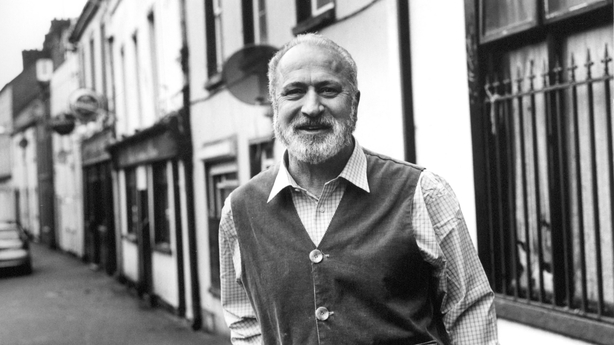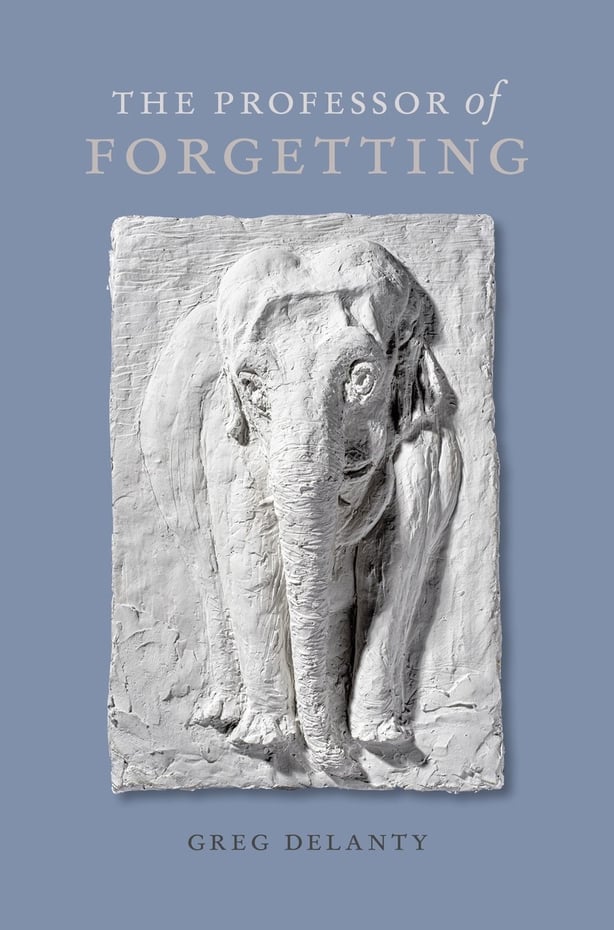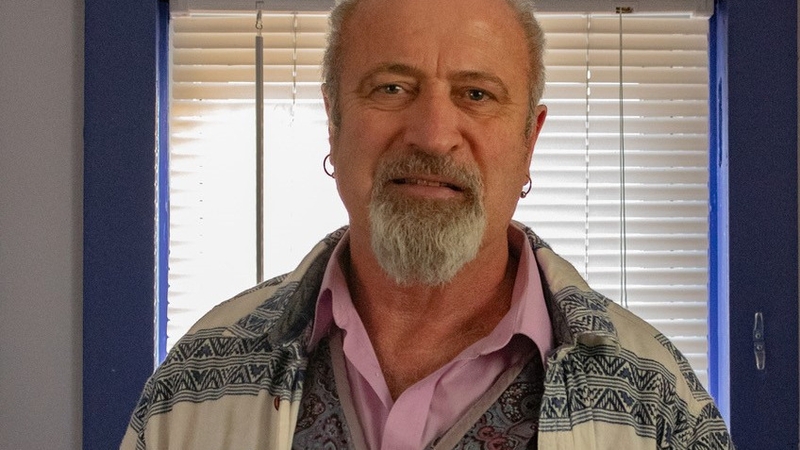'For him words are the essential invisible plankton of daily life...' Author, playwright and poet Dermot Bolger celebrates the work of poet Greg Delanty, whose new collection The Professor of Forgetting is out now.
Greg Delanty's rather prematurely titled Collected Poems in 2016 contains tender sadness in poems that record the illness of his mother and ended with a stunning evocation of childhood in Cork to complete a remarkable book. But no life's work is ever completed and it is fascinating to see those same themes returned to in his new book The Professor Of Forgetting, like the poem to his mother on her death bed in Marymount Hospice or the memories of childhood journeys in a Ford Anglia.
These poems and experiences are renewed, made new again in the fine poems in this book, which also possesses the quick wit of a man who has reached the age where he understands the seriousness of humour and the dangers of pomposity if you walk the right rope of high seriousness – which Delanty never does.
Here is a wonderful p**s-take of Edward Thomas’s most famous poem; here poor Yorick gets his true comeuppance and Delaney posing a question missed by many Yeats scholars that, if swans mate for life, then what was the odd sexual peculiarities of the odd swan out when Yeats’ counted nine and fifty at Coole.
It is an odd question but this is a book that delights in allowing his brain the space for those strange thoughts that spark into poetry. Delanty understands that the greatest gifts for poets are boredom and mental drift, the blank space that allows thoughts to enter that you were previously unaware of but are now suddenly vital.
Living and writing has become the in-box and out-box of every breath and journey taken.
For him, words are the essential invisible plankton of daily life. They give shape to the world around him as much as buildings do, or maybe they give not so much shape as sense. For forty years these poems have been his map to unknown places to colonise. We Irish colonise with sleeping bags and not tanks, but Greg does it in these poems where every element is individual and essential but all are essentially part of a greater whole. Yeats said to hammer your thoughts into unity but at times Greg deliberately used very small nails for his own unique mosaic.
His poetry and his life have become interwoven over four decades. Living and writing has become the in-box and out-box of every breath and journey taken.
At times his journeys and poems have tackled themes – he has been a campaigner for the environment as an activist and also as a poet in books like No More Time.

But woven through all these external engagements with the life he moves through, there is always that now which he refers to in his opening poem, Going Nowhere Fast. For him now seems to be not one moment but a compendium of eternity in which life is both lived and re-lived. In this permanent now Greg is still the 28-year old in the Peacock Theatre, starting off on this literary adventure, the sixteen-year-old writing his first poem, the young man losing his first wage packet in the final poem of this book because he is too easily distracted by the thoughts that come from nowhere, the themes that suddenly consume him, the poems that slip through tiny cracks in his sub-consciousness, which rhyme and chime with our experiences.
He is a poet of Ireland and of America and too often we talk of poets like him and the great Sara Berkeley as being exiles and emigres. But no Cork man ever lets you get the last word, and in a superb and shrewd poem called To Those Who Stayed, he points out that maybe it is we who are the exiles, adrift in once familiar cities that keep changing beyond recognition before our eyes.
This new book is a compendium of the odd socks in his life - as his poem, refers to:
"There should be an asylum for single socks,
lost, dejected, turned in on themselves.
The twin sock, soul mate, doppelganger gone AWOL...
...but how good
it is to see socks united once more, folded
into each other, close, touching, at once,
the deserter promising to stay put, not to take a hike,
not do a runner this time. No greater joy is known
than on these occasions. Such dancing, such cavorting,
such jubilation in the kingdom of socks."
It is built from the moments forgotten and now re-lived and made sense of. It deliberately avoids the unity of some other collections. But if not sequential, it is also not random. It is a jigsaw, carefully and skilful put together, not a biography but a distilling of the experience that informs autobiography, the moments when you look back and realise that all you have forgotten is the inconsequential stuff, not the essence of who you are truly are and where you have truly travel. The moments forgotten and now re-lived and made sense of. It deliberately avoids the unity of some other collections. But if not sequential, it is also not random. It is a jigsaw, carefully and skilful put together, not a biography but a distilling of the experience that informs autobiography, the moments when you look back and realise that all you have forgotten is the inconsequential stuff, not the essence of who you are truly are and where you have truly travel.
Delanty is no professor of forgetting, but a connoisseur of the vivid remembrance of what is truly important about the experience of living with and through literature, a chronicler of love, of family, of friends, understanding the essence of life.

Elegy for Somebody with Alzheimer's
(I.M. of Ed Epstein)
Whoever you are has escaped, can’t be traced,
the record of all you are to yourself erased,
leaving your body like a baying bloodhound,
confounded, smelling the cold, hard ground,
staring helplessly across the impossibly wide
river --having lost the trail on this side
of the banks of Lethe --sniffing, sniffing the air,
not a scent, nor a sign of a sole print anywhere.
The Professor Of Forgetting by Greg Delanty is published by LSU Press

